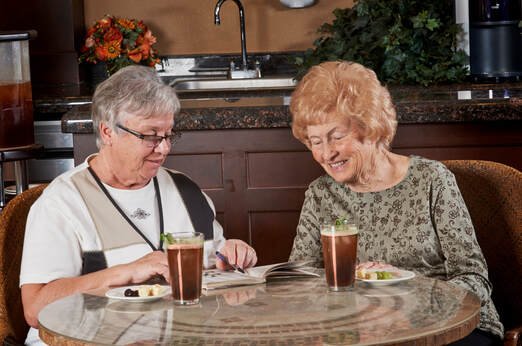No Matter How Healthy a Food is, You Should Still Pay Attention to Portion Size
In addition to the types of food we eat, dieticians say it is also important to pay attention to portion size when attempting to shed a few pounds as it will help us reach our goal. When trying to diet, sticking to nutrient-dense, relatively low-calorie foods such as vegetables, fruits, whole grains, lean meats and poultry are your best choices; but no matter how healthy a food is, you still should not over consume.
This is where portion control plays a part. Amy Gorin, a plant-based registered dietitian and owner of Plant-Based Eats, a collection of curated meal plans, grocery lists and nutrition tip sheets, explains that whole foods like almond butter and dark chocolate are good for us, they should be eaten in moderation and in proper portions. In other words, the bottom-line is a large chocolate bar should not be consumed in one sitting.
However, to complicate matters, experts explain that in many cases, strictly following portion sizes suggested on the container would differ from what a registered dietician would recommend. The problem with across-the-board portion sizes is they do not address the age group, gender, and activity level of the individual person. Add to that, portion size is a critical component to losing weight especially in foods that are higher in calories.
Also, eating the right amount of food helps to maintain a balanced gut. The Harvard Health Men’s Watch, suggests “a healthy gut microbiome stimulates the body’s immune system and may shield against an array of chronic diseases, including cancer, heart disease and rheumatoid arthritis.”
MorningStar at West San Jose provides residents comfort, security, built-in companionship, and predictable budgeting. Our beautiful community offers assisted living and memory care with a broad range of amenities and services to meet every need including a nutritious, delicious dining service. Contact us or visit our website to learn more about MorningStar’s senior living in San Jose.
MorningStar at West San Jose’s foundation is based on the mission to honor God, value seniors and invest in our staff to create a unique senior living experience. Set in a warm, loving atmosphere with beautiful surroundings and luxury amenities, we provide exceptional assisted living and memory care. Please contact us or visit our website for more information.
Source: health.usnews.com/wellness/food/articles/portion-control-what-you-should-know



















